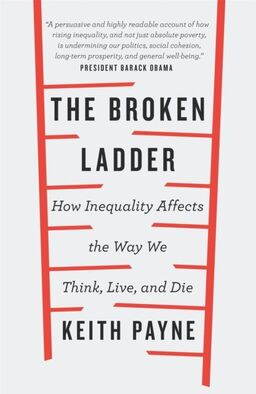
The broken ladder : how inequality changes the way we think, live and die
Keith PaynePayne, Keith Bok Engelsk utgitt 2018
Ledig
- Sølvberget, 3. etasje: 1 av 1 ledig
Plassering: Fagbøker (sortering: 305 PAY)

*0010665395 *003NO-LaBS *00520211116211403.0 *007t *008180912s2018 xx er 0 eng d *009 nam 1 *019 $bl *020 $a978-14-7460-112-2$qh.$cNkr 134 *0243 $a9781474601122 *035 $a(NO-LaBS)11431222(bibid) *035 $a(NO-OsBAS)150302018 *040 $bnor *08204$a305$223/nor$qNO-OsBAS *090 $c305$dPAY *1001 $aPayne, Keith$_36040300 *24514$aThe broken ladder$bhow inequality changes the way we think, live and die$cKeith Payne *260 $aLondon$bWeidenfeld & Nicolson$c2018 *300 $a246 s.$c20 cm *336 $atekst$0http://rdaregistry.info/termList/RDAContentType/1020$2rdaco *337 $auformidlet$0http://rdaregistry.info/termList/RDAMediaType/1007$2rdamt *338 $abind$0http://rdaregistry.info/termList/RDACarrierType/1049$2rdact *5208 $aAmong modern, developed societies, economic inequality is not primarily about money. It is about where we stand compared to other people. Money is simply the way we keep score. 'The Broken Ladder' tells the story of inequality, not from an economic or political perspective, but from the perspective of the evolved brain, body and mind. Keith Payne is at the forefront of studies in inequality, and his research proves that relative poverty changes everything from our mood to our decision-making capabilities, affecting our goals, our health and even our religious views. *65007$aPsykologi$2Bokbasen AS$_10136900 *65007$aSosialantropologi$2Bokbasen AS$_10841700 *653 $aLikhet *6530 $aFattigdom *6530 $aUlikhet *856 $qimage/jpeg$uhttps://media.boknett.no/objects/18/20/150302018/productimage_ORG_36e4a9a245447e6780d791fd0bb2f3070661928f.jpg ^